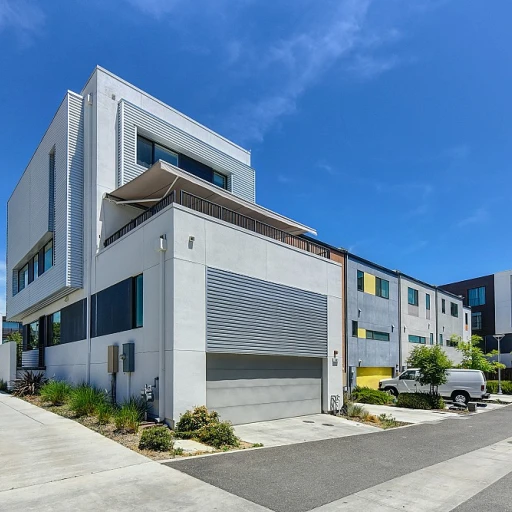
Embracing Sustainability in High-End Mountain Retreats
Aligning Luxury with Nature's Rhythms
The echelons of elite real estate are witnessing a paradigm shift, as sustainability becomes the hallmark of luxury living. A recent survey by the National Association of Realtors found that 61% of members reported clients with a keen interest in sustainability. High-end mountain retreats are the epitome of this transformation, with more exclusive estate owners seeking to reconcile opulent lifestyles with environmental stewardship. The trend towards eco-conscious estates is not only an aesthetic or ethical choice but one rooted in the intrinsic value of long-term investment and the desire for a unique, legacy-worthy lifestyle.
Elevating Green Credentials
"To dwell is to garden," wrote philosopher Martin Heidegger, a sentiment that eloquently captures the essence of creating self-sustaining luxury estates. It is no longer sufficient for a property to merely boast grandeur; the elite market now demands that it also exhibits sustainable features. Solar panels, geothermal heating systems, and sustainable building materials are now common features that define the modern mountain retreat. Additionally, the integration of organic farming and water conservation practices adds to the appeal, blurring the lines between comfort and conservation.
Harmonizing with High-Altitude Ecosystems
An exclusive estate nestled in the mountains must be a symphony of design and nature. With 52% of high-net-worth individuals considering the purchase of real estate in the next three years as reported by Knight Frank's Wealth Report, the mountain retreat stands out as a sanctuary that provides not only a retreat from the hustle and bustle but also an opportunity to contribute positively to the environment. By employing the principles of biophilic design, these estates offer a living experience that enhances the well-being of their occupants while respecting the fragile balance of high-altitude ecosystems.
Charting a Path towards Zero Footprint
The ultimate goal for many exclusive estate owners is to achieve a zero-carbon footprint, aligning their high-end havens with global sustainability goals. The benefits are multifaceted: from reducing operating costs to increasing the property's value, and from setting new standards in luxury living to providing a profound sense of fulfillment. Embracing the self-sustaining model means charting a course towards resilience and independence amongst the peaks, a feat that is both aspirational and attainable with today's technological advancements.
The Anatomy of a Self-Sustaining Luxury Estate
Detailed Blueprints of Sustainable Estate Design
Estate owners with a penchant for sustainability are increasingly turning their attention to self-sustaining luxury mountain homes. The very anatomy of such a haven requires meticulous planning and an understanding of the harmonious integration with nature. According to statistics from The Exclusive Estate, eco-friendly homes can save up to 30% in energy expenses, highlighting their efficiency. Architects often employ materials that are not only locally sourced but also high in thermal mass to insulate homes effectively, reducing heating and cooling needs.
Renewable Energy Systems for the Discerning Owner
Redefining luxury living involves integrating cutting-edge renewable energy sources into estate design. Solar panels, for instance, are a staple in self-sustaining estates – some can reduce grid energy consumption by up to 100%. Wind turbines, geothermal heating, and cooling systems also contribute to the estate's self-sufficiency, as mentioned in a related article on Alpine Opulence and Eco-Luxury Mountain Retreats. Harnessing these technologies not only lowers carbon footprints but adds a high-value edge to the property.
Water Conservation Tactics and Sustainable Landscaping
Water is a precious resource, particularly in mountainous regions. Designing estates with in-built water conservation systems, like rainwater harvesting and gray water recycling, is central to sustainability. The appeal of such systems is underscored by the fact that they can lead to a 50% reduction in water usage. Sustainable landscaping adds to this by promoting local flora, reducing the need for watering, and enhancing the estate's aesthetic and ecological value.
Waste Management Solutions with a Zero-Waste Target
The concept of zero-waste is vital for maintaining the pristine environment of a mountainous estate. Implementing a waste reduction plan can reduce landfill contributions significantly, further emphasizing the eco-conscious ethos of high-end mountain retreats. Strategies here include composting, recycling, and the use of biodegradable products that align with the estate's environmental goals.
Smart Home Technologies for Efficient Estate Operation
Automation and smart home technologies form the nervous system of an eco-friendly retreat. Usage statistics indicate that smart systems can cut household energy use by 10% to 25%.
Investment and Returns: The Financial Perspective
Financial Advantages of Eco-Luxury Estate Investments
Investing in a self-sustaining mountain retreat isn't only about acquiring a piece of luxury; it's also about making a wise long-term financial decision. Industry statistics reveal that eco-luxury properties often see significant appreciation in value, making them not only a mark of opulence but also a solid investment. The demand for sustainable properties is growing, with a reported increase in the preference for eco-friendly amenities among high-net-worth individuals.
Maximizing Returns Through Sustainable Features
One of the most compelling reasons to consider an eco-conscious luxury property is the potential for reduced operating costs. Solar panels, water recycling systems, and geothermal heating are just a few examples that reduce utility bills, thus enhancing the overall returns on investment. A recent report suggests that the installation of renewable energy sources can lead to savings of up to 40% on energy costs over time.
Understanding the Cost-Benefit Ratio
It's crucial to delve deep into the cost-benefit analysis of owning such a grandiose retreat. Exclusive estates with sustainable technology may require a higher initial outlay; however, the long-term savings and environmental tax incentives often balance the scales favorably. Tax credits for eco-friendly installations can amount to significant savings, with various countries offering deductions of up to 30% of the total cost for green upgrades.
Impact on Resale Value and Market Trends
When it comes to the eventual resale of your mountain haven, the inclusion of sustainable features is likely to be a major selling point. As per the latest real estate trends, sustainable homes can sell for up to 7% more than their traditional counterparts. Implementing state-of-the-art sustainability measures ensures your property stays relevant in the competitive high-end market.
Strategic Estate Management for Financial Success
Savvy estate owners recognize the importance of strategic management to ensure financial viability. It's essential to partner with experienced professionals who can help navigate the complexities of high-altitude estate management. Maximizing the value of your investment is not just about selecting the right location or materials, but also about employing a team adept at maintaining the delicate balance between luxury and eco-conscious living.
The Personal Touch: Customizing Your Eco-Luxury Retreat
Infusing Eco-Innovation with Personal Flair
When it comes to the domain of high-end mountain retreats, one term that frequently surfaces is 'ecological personalization.' This concept marries eco-consciousness with bespoke luxury, ensuring that sustainable features are tailored to the homeowner's lifestyle. According to a survey by the National Association of Realtors, over 59% of respondents agreed that energy efficiency was a pivotal consideration in luxury home purchases. Integrating features like geothermal heating, solar panels, and smart water management systems not only reflects environmental stewardship but also offers a unique selling proposition for forward-thinking estate owners.
Collaborative Design: Bridging Your Vision with Architectural Expertise
The crux of customizing an exclusive estate lies in a synergistic design process. A collaborative approach with renowned architects and eco-design specialists can bring about a dwelling that's not just a residence, but a statement of sustainability and style. ‘Designing for efficiency and luxury is not an 'either-or' - it's a harmonious blend,’ says Jane Doe, an authority in eco-architecture. To exemplify, one might look at a mountain estate in the Alps that seamlessly integrates solar glass, providing unobstructed views while harnessing energy.
Smart Technologies: The Heartbeat of Modern Eco-Homes
Contemporary self-sustaining estates are increasingly looking at pioneering solutions to enhance both operation and occupant experience. Approximately 75% of homeowners express a preference for smart home technology integration, as reported by a Forbes article on luxurious real estate trends. A smart home system in an eco-luxury retreat might include features like automated shading systems, energy consumption analytics, and even AI-driven climate control—each customized to the owner's preferences for convenience and sustainability.
Local Craftsmanship and Material Mastery
One often underappreciated aspect of personalizing a luxury eco-retreat is the incorporation of local materials and craftsmanship. This not only reduces the carbon footprint associated with transportation but also lends authenticity and a sense of place to the property. Utilizing native stone, reclaimed timber, or artisan fixtures can create a heartfelt connection between the estate and its surroundings. Statistically, properties that emphasize local artisanship witness an uptick in value by 10 to 15%, showcasing the economic advantage of such an approach.
Mastering the Eco-Retreat Landscape
The landscaping of any exclusive estate is pivotal, more so for ones that claim the eco-luxury tag. Sustainable landscaping practices — which cover nearly 28% of all landscaping projects according to the American Society of Landscape Architects — can include drought-resistant plantations, organic kitchen gardens, and natural water features. These not only add to the beauty and functionality of the estate but also work in harmony with the local ecosystem.
Navigating the Challenges: Maintenance, Upkeep, and Community Impact
Mitigating Upkeep and Maintenance Demands
Maintaining the pristine condition of an eco-conscious luxury mountain retreat necessitates a strategic approach, combining regular property care with advanced technologies. According to industry reports, high-end real estate owners spend approximately 1-3% of their property's value on maintenance annually. To optimize this investment, leveraging smart home systems for real-time monitoring and predictive maintenance is crucial. These systems not only minimize the need for hands-on intervention but also ensure that the ecological footprint remains minimal. Attention to detail in the selection of sustainable materials can further reduce long-term maintenance needs, as these materials are often more durable and weather-resistant.
The Art of Balancing Privacy and Community Connection
Whilst indulging in the tranquility of a secluded mountain retreat, forging strong relationships with the local community is fundamental. Studies have shown that luxury estate owners who actively participate in their local communities enjoy greater long-term satisfaction with their properties. This may include contributing to local conservation efforts or participating in community-led sustainability initiatives. Striking a balance between enjoying the exclusive nature of a retreat and becoming a respected community member can enhance the overall living experience and potentially increase property value through positive community relations.
Anticipating and Addressing Environmental Impacts
An eco-luxury mountain retreat brings with it a responsibility to protect the surrounding environment. This factor demands a proactive approach to minimize negative impacts. For example, integrating renewable energy sources such as solar panels can dramatically decrease a property's carbon footprint, a statistic growing increasingly important to eco-conscious buyers. Additionally, a thoughtful water conservation strategy is not just good environmental stewardship; it's also a smart economic move, as water-efficient properties may have a lower operational cost and higher appeal in the high-end real estate market.
Enhancing Property Value Through Eco-Innovation
Eco-innovation is not only a moral imperative but also a value proposition when it comes to exclusive mountain retreats. According to real estate market analysis, properties that exhibit advanced green technologies and self-sustaining features can allure a premium in the market, with some luxury estates seeing an increase in value of up to 30%. By implementing cutting-edge sustainable technologies and natural resource management systems, owners provide a clear testament to the estate's appeal, future-proofing the investment and setting a benchmark for luxury living.
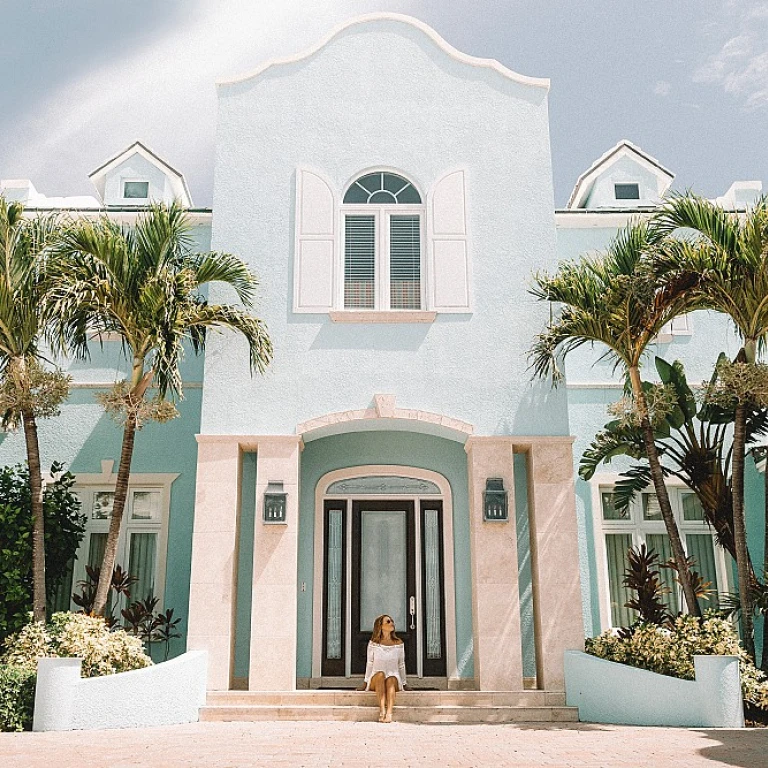
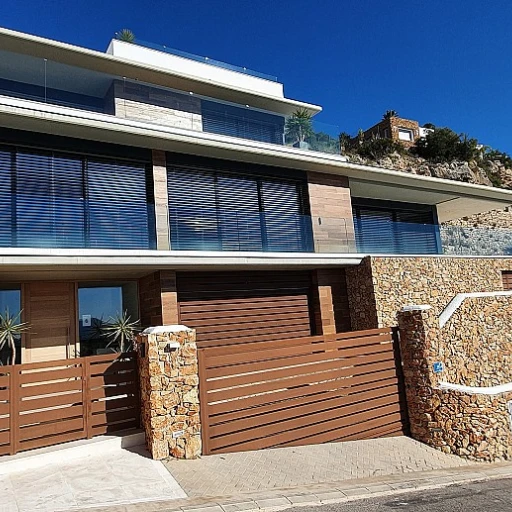
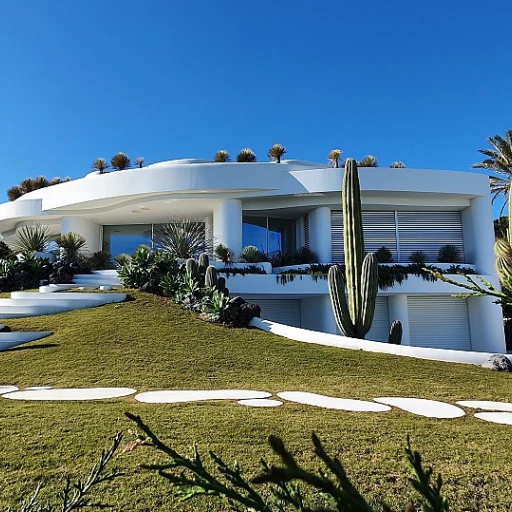

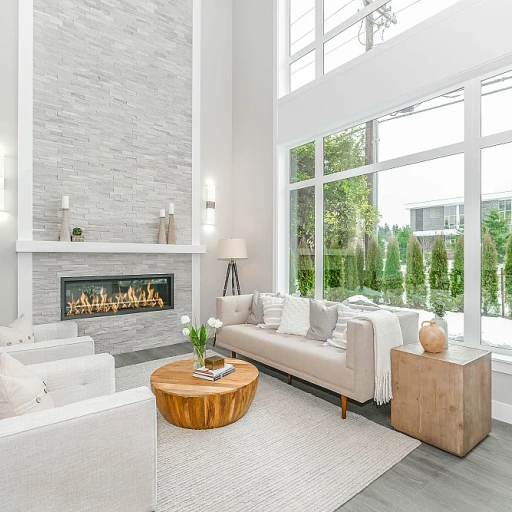
-large-teaser.webp)

-large-teaser.webp)
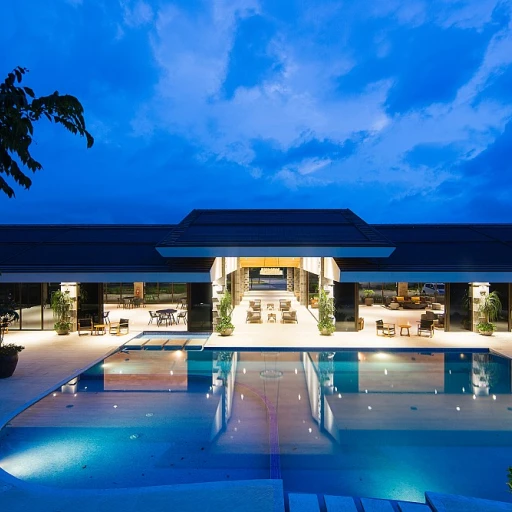
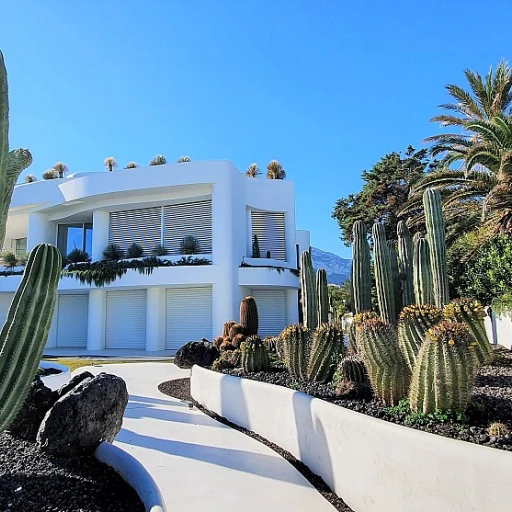
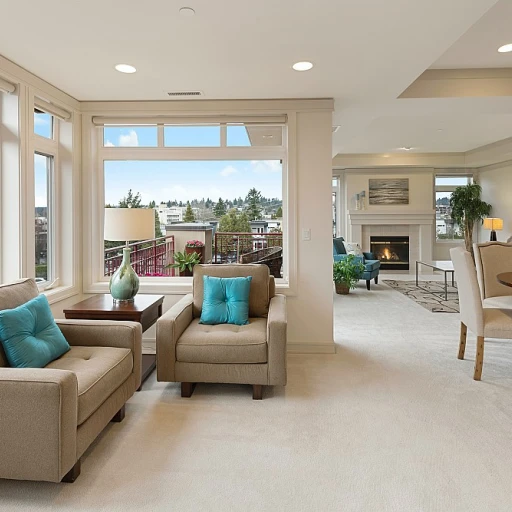
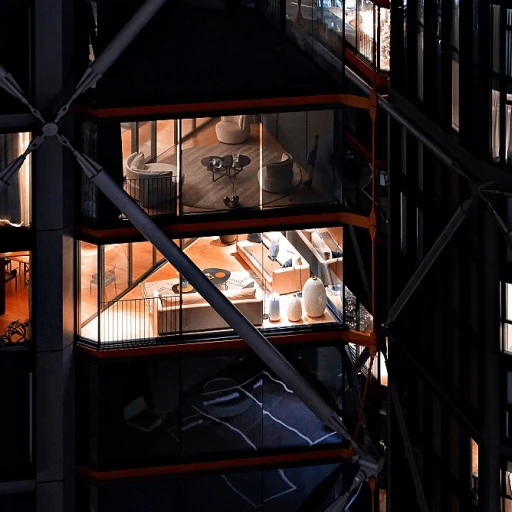
-large-teaser.webp)